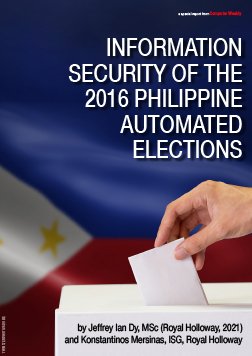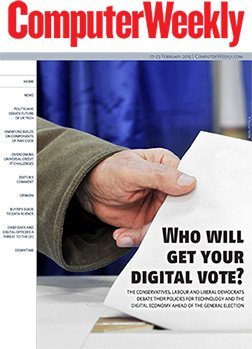Access your Pro+ Content below.
Royal Holloway: Information security of the 2016 Philippine automated elections


Sponsored by TechTarget ComputerWeekly.com
For this article in our Royal Holloway security series, the authors analysed 426 log files provided by the Philippines’ Commission on Elections to objectively recreate what transpired during the 2016 presidential elections and thereby gauge the integrity of the Philippine Automated Election System
Table Of Contents
- The Philippines will once again hold Presidential National and Local Elections on 9 May 2022. Philippine National Elections are fully automated with the Automated Election System (AES) supplied by Smartmatic. The upcoming election, however, is overshadowed by questions left unanswered from the 2016 presidential elections.
- We analysed 426 log files provided by the Philippines’ Commission on Elections to objectively recreate what transpired during the 2016 elections. These log files were used to gauge the integrity of the Philippine AES using an AES Trust Model developed by this research. The model consists of eight properties that are considered universally applicable to any automated election, and based on the election event logs, the 2016 election failed most of the properties.
- Analysis of the available log files proved the existence of the “secret” 4th server and that transmissions happened before the official opening of the polls.
- Research revealed significant events that can prove useful in defining the control mechanisms needed to improve the information security of the 2022 Automated Elections.
- The AES used by the Philippines in 2016 failed in five out of the eight properties of the AES Trust Model.







